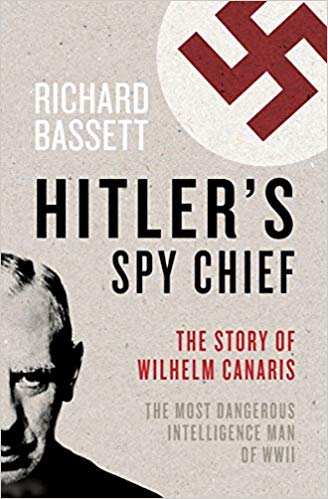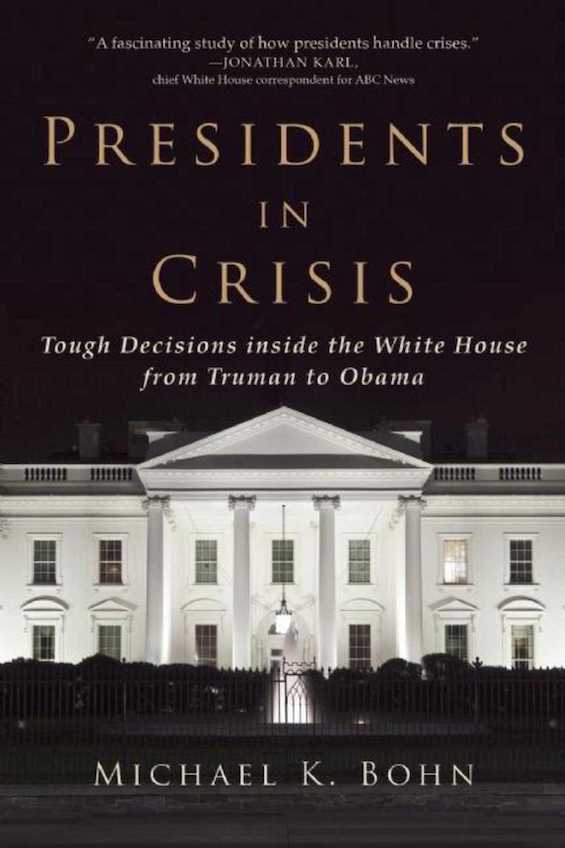
Estimated reading time: 6 minutes
Most histories of World War II give the impression that the conflict was a straightforward affair. Whether recounting the story of battles (Stalingrad, Normandy, Midway) or the tales of spies and saboteurs (Britain’s SOE, America’s OSS, Germany’s Abwehr), they tend to draw straight lines from one event to the next. Of course, human affairs are never so simple. History doesn’t travel in straight lines. But only in recent years, as classified or hidden files have opened up, have we gained a clearer picture of just how complex and confusing the war was. Hitler’s Spy Chief, Richard Bassett’s biography of Admiral Wilhelm Canaris, director of the Abwehr, makes that abundantly clear. This book reveals that, even today, there is a secret history of World War II that remains to be told.
The name Admiral Canaris is familiar to anyone with even a passing knowledge of World War II. He ran Hitler’s Abwehr for a decade, from 1935 to 1944, when he was arrested for his role in the assassination attempt on the Führer and eventually executed. Although I’ve read a fair amount about espionage in the war, that abbreviated description of the man is most of what I’d known about him before I came across Bassett’s book. And what a revelation it is!
Hitler’s Spy Chief: The Wilhelm Canaris Story by Richard Bassett (2012) 352 pages ★★★★☆
Here’s some of that secret history of World War II
Here are just a few of the mind-bending disclosures in Hitler’s Spy Chief . . .
The hidden meaning of Munich
There is far more to the story about Neville Chamberlain’s infamous trip to Munich than is generally known. In the weeks leading up to his meeting with Hitler, Canaris and the German general staff were actively seeking support from Britain to kidnap and imprison Adolf Hitler and head off the war they were certain would come. Their plans were well advanced. However, Hitler “was about to be saved — not by the SS or the Gestapo or Ribbentrop, who had no inkling of the conspiracy — but by the only people who did, the British.” Chamberlain announced his flight to Munich, “fully aware that the German leader was almost certainly about to be deposed.” The generals were then forced to quash their plan.
A separate peace between Germany and Britain?
In 1940 and again in 1943, Admiral Canaris was actively engaged in efforts to arrange a separate peace between Germany and Britain. He and his British counterpart, Sir Stewart Menzies, “C” of MI6, shared an intense anti-Communism and hoped to unite the West against the Soviet Union. There is strong circumstantial evidence that the two men even met face-to-face in Spain. However, their efforts were frustrated by Kim Philby, the NKVD’s man in British intelligence. Philby held a senior position and sidetracked the paperwork that would have moved the partnership further along. As a Communist, Philby regarded the prospect of peace on the Western Front as a nightmare, as it would have freed up German troops to move eastward and threaten the Soviet Union.
Behind-the-scenes efforts for peace
In fact, almost throughout the duration of the war, Hitler and Himmler as well as Canaris were actively involved in peace initiatives. Early in the conflict, they had hoped to reach an understanding with Britain. After all, many Britons, and many in their government, were pro-Nazi. And, in fact, before Winston Churchill had fully gained control of the cabinet “in the strange spring days of May [1940], the British government came close to throwing in the towel.” Much later, in 1943 following the Nazis’s catastrophic defeat at Stalingrad, Hitler sought to engineer an armistice with the Soviet Union. And even later Himmler kept Canaris in place despite evidence that the admiral was a traitor because his connections with the British might allow Himmler to survive the war. On all sides, there was far more communication across enemy lines than is generally known.
Poorly written, but a well-researched and balanced account
To be sure, Hitler’s Spy Chief won no literary awards and never would have. It’s poorly written and slow going as a result. In part, that’s the result of the author’s attempt to describe reality as it unfolded. The cast of characters, already large, shifts often and abruptly. Their relationships were sometimes hard to characterize as either friend or foe; sometimes they were both. But the fundamental problem is that Richard Bassett simply can’t write well. He loves long sentences. He wallows in the passive voice. And his syntax is sometimes baffling.
Still, Bassett’s account of the life of Wilhelm Canaris is both well-researched and balanced. He neither condemns nor celebrates the man. In fact, he writes, “the temptation to beatify the admiral must be resisted. He was, in his own way, a ruthless exponent of all the techniques of deception, disinformation and other patterns of subterfuge without which no successful secret intelligence organization can exist. He was also for far too long a ‘believer.'”
Bassett continues, “It took Canaris slightly longer than many others to see the Nazis for what they really were. But once he became convinced that they were leading his country to ruin, both physical and moral, he never wavered from a policy of systematically undermining the regime from within, and seeking an understanding with the West.” And, given what Bassett reveals in his book, that about sums it all up. Hitler’s Spy Chief is an excellent opening chapter in the secret history of World War II.
About the author
Here’s Richard Bassett’s bio on Amazon: “Richard Bassett has worked in the City [of London] for the last fifteen years advising several of Europe’s largest companies. Previously he worked in Central Europe for many years, first as a professional horn player and then as a staff correspondent of the London Times in Vienna, Rome, and Warsaw, where his dispatches covered the end of the Cold War and gave early warnings of the impending disintegration of Yugoslavia. He divides his time between London and the Continent.” In other words, Bassett is neither an historian nor a working journalist. But the man does have a way with research.
For related reading
You might also be interested in:
- 10 top nonfiction books about World War II
- Good nonfiction books about espionage
- Great biographies I’ve reviewed: my 10 favorites
- 20 top nonfiction books about history
And you can always find my most popular reviews, and the most recent ones, on the Home Page.

























